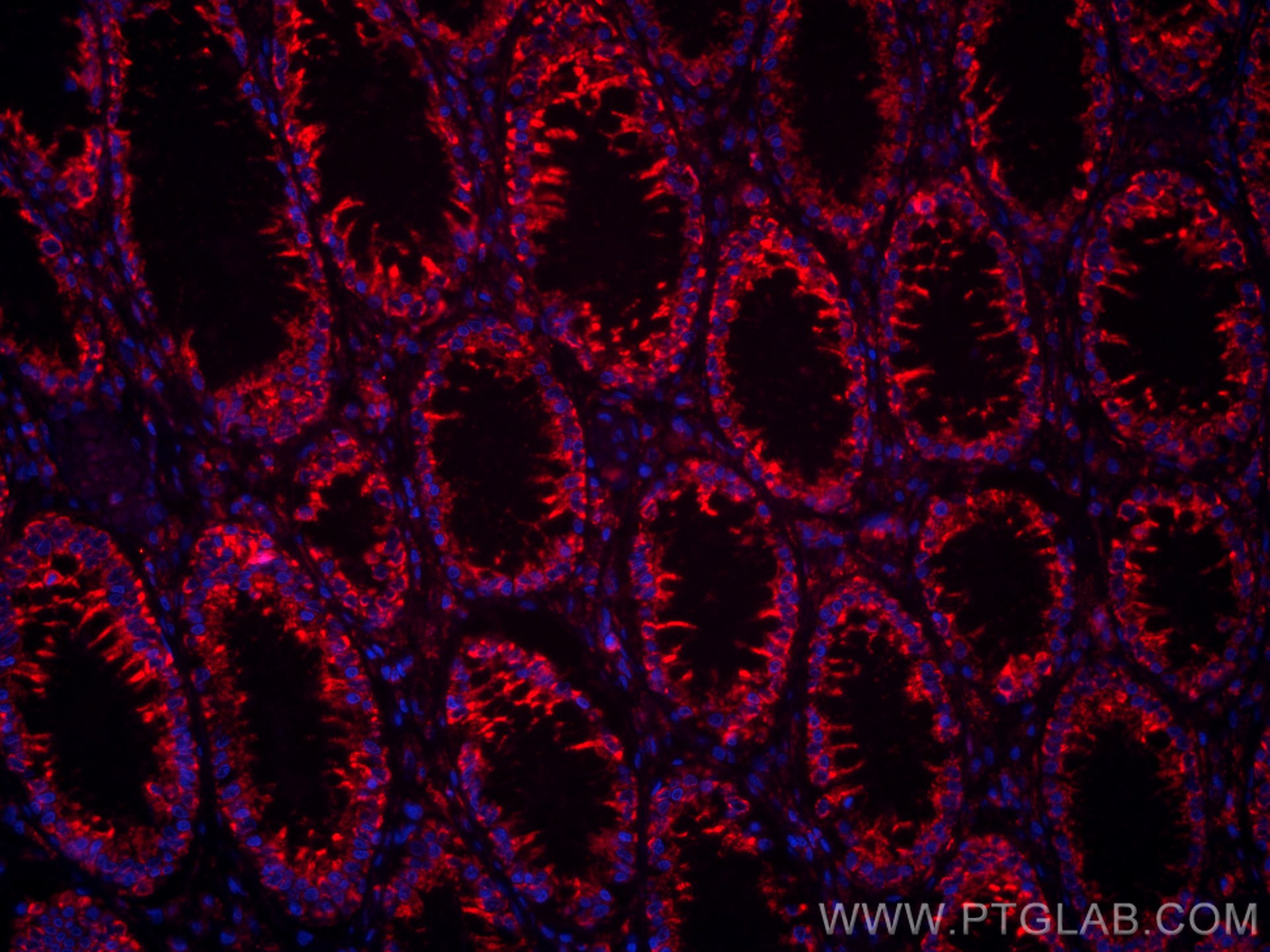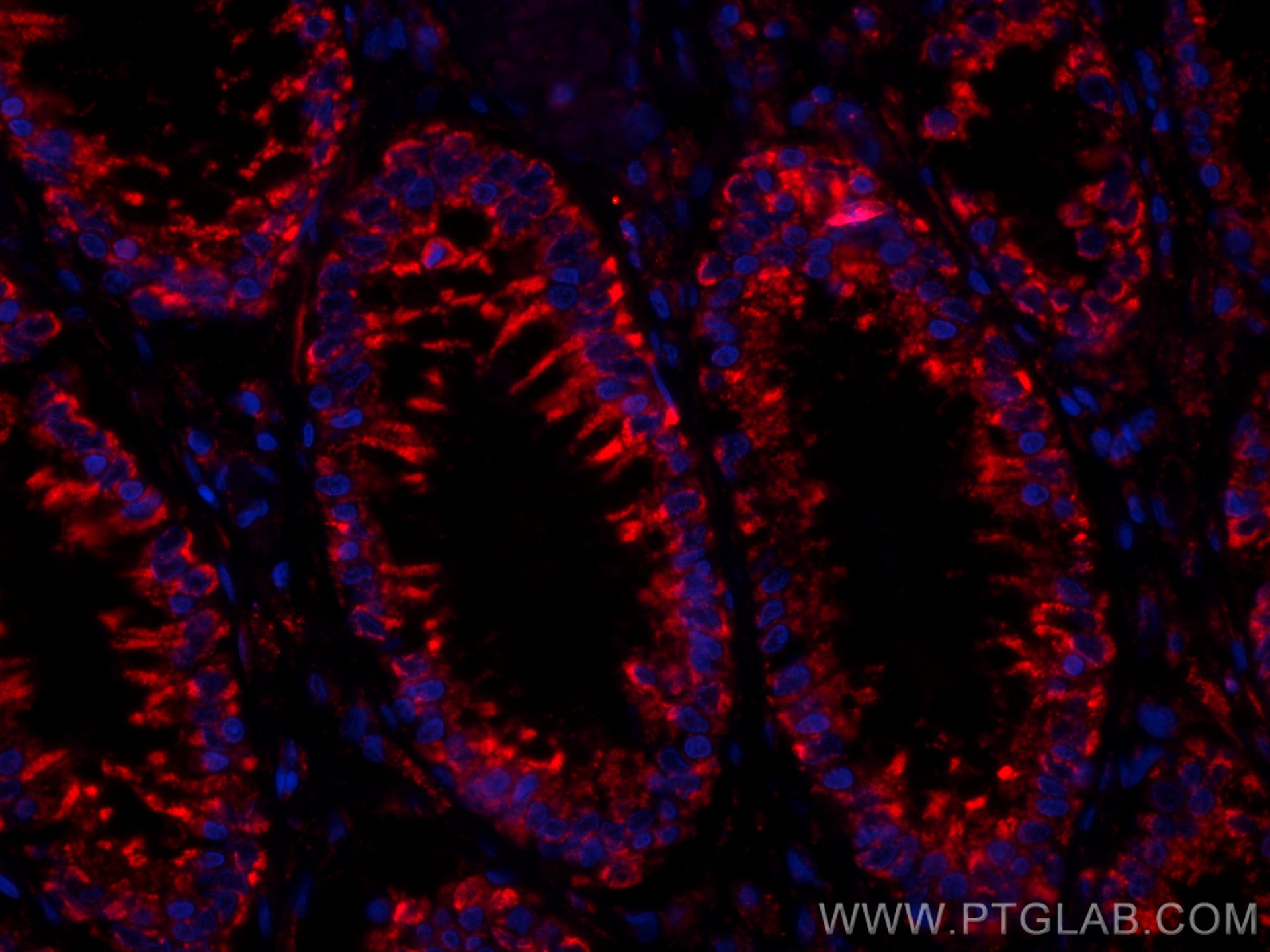CoraLite®594-conjugated Annexin A10 Monoclonal antibody
Annexin A10 Monoclonal Antibody for IF
Host / Isotype
Mouse / IgG2a
Reactivity
Human, pig, mouse
Applications
IF
Conjugate
CoraLite®594 Fluorescent Dye
CloneNo.
1A7A11
Cat no : CL594-66869
Synonyms
Validation Data Gallery
Tested Applications
| Positive IF detected in | human colon cancer tissue |
Recommended dilution
| Application | Dilution |
|---|---|
| Immunofluorescence (IF) | IF : 1:50-1:500 |
| Sample-dependent, check data in validation data gallery | |
Product Information
CL594-66869 targets Annexin A10 in IF applications and shows reactivity with Human, pig, mouse samples.
| Tested Reactivity | Human, pig, mouse |
| Host / Isotype | Mouse / IgG2a |
| Class | Monoclonal |
| Type | Antibody |
| Immunogen | Annexin A10 fusion protein Ag27098 相同性解析による交差性が予測される生物種 |
| Full Name | annexin A10 |
| Calculated molecular weight | 37 kDa |
| Observed molecular weight | 37 kDa |
| GenBank accession number | BC007320 |
| Gene symbol | ANXA10 |
| Gene ID (NCBI) | 11199 |
| RRID | AB_2920049 |
| Conjugate | CoraLite®594 Fluorescent Dye |
| Excitation/Emission maxima wavelengths | 588 nm / 604 nm |
| Form | Liquid |
| Purification Method | Protein A purification |
| Storage Buffer | PBS with 50% Glycerol, 0.05% Proclin300, 0.5% BSA, pH 7.3. |
| Storage Conditions | Store at -20°C. Avoid exposure to light. Aliquoting is unnecessary for -20oC storage. |
Background Information
ANXA10, member of the Annexin family, is a calcium-and-phospholipid-binding protein. It is implicated in multiple physiological processes, including growth regulation, cell division, apoptosis, and differentiation. ANXA10 was recently observed to be upregulated in Barrett's esophagus, oral cancers, pancreatic cancer and colon cancer.
Protocols
| Product Specific Protocols | |
|---|---|
| IF protocol for CL594 Annexin A10 antibody CL594-66869 | Download protocol |
| Standard Protocols | |
|---|---|
| Click here to view our Standard Protocols |



